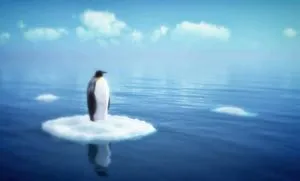Climate change is a hot topic these days. Some people are worried, some are uninformed, and some brush it off as a relatively minor concern. This week, President Obama aims to put the issue of climate change — and the repercussions it can have — into the forefront of our minds.
To broadcast awareness of climate change and the effects of global warming around the globe, President Obama is now in Alaska for a three-day trip, during which he will tour various regions and speak on some of the dangers facing Alaskan communities. This is a significant trip for many reasons, and is the first time a U.S. President has visited the Arctic while in office.
On the trip, Brian Deese, senior adviser at the White House, stated, “The issue of climate change is not an issue of the future tense in Alaska, it is affecting people’s lives and their livelihoods in real ways.”
Due to areas in the arctic warming at almost double the rate of the rest of the world, the rising sea level and coastal erosions have led to losses of, “a football field’s worth of land a day,” in Northern Alaska, according to Deese. The Obama administration also revealed to the press that there are four villages in Alaska that are in “imminent danger” from these phenomena, and that their inhabitants are needing to relocate.
Yesterday, President Obama met with members of the Alaskan native population, in a conversation based around ways that the government could aid in preparation for the frightening repercussions of this present (and future) climate change. Along with the rising sea levels and glacial melting threatening nearby towns, hunting and fishing seasons are also being affected.
Obama’s trip is being heavily followed on social media, in hopes that people can see for themselves that climate change is a real and very present danger.
It’s not just Alaska that is being affected by climate change — though it’s happening faster up North than in other regions across the globe. Last year, the National Oceanography Centre led a study which projected that by the year 2100, if climate change continues on the course that it is on, many of the world’s marine animals and plant life will become extinct.
The lead author of the study, Dr. Daniel Jones, stated:
“We were expecting some negative changes around the world, but the extent of changes, particularly in the North Atlantic, were staggering… Globally we are talking about losses of marine life weighing more than every person on the planet put together.”

President Obama has other climate change conferences planned throughout 2015, including a conference on the topic to be held in Paris, France this coming December. We hope that his efforts impart more public knowledge of climate change around the world — and that together, we make a plan to do more about it than sit back and watch.
—The Alternative Daily
Sources:
http://www.cnn.com/2015/08/30/politics/obama-alaska-denali-climate-change
https://www.thealternativedaily.com/study-climate-change-significantly-reduce-marine-life-next-century
